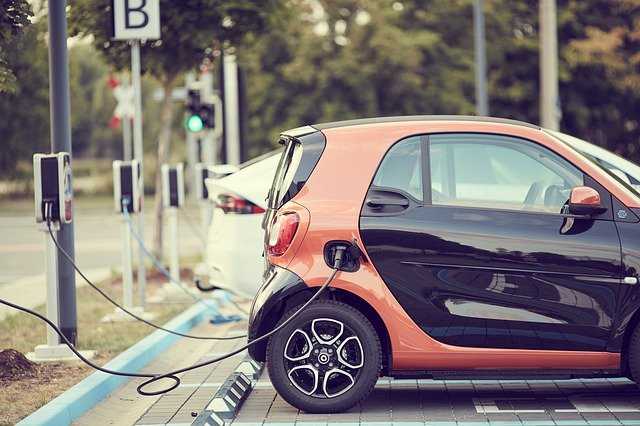Using Electric Vehicles To Combat Air Pollution

Air pollution is frequently referred to as a public health crisis. More towns and cities around the world are facing air pollution today, and the situation is not better.
It is obvious that road transport is the principal source of dangerous gases and particulates, hence the use of the electric vehicle is an important component of the solution.
.jpg)
Electric Vehicles
Electric vehicles have been around since 1830, and with so many people worried about pollution and the increasing expense of gasoline, they are regaining popularity.
Electric cars have been utilized as fleet vehicles by servicemen and for several years in the form of golf carts.
Electric vehicles that are suitable for daily highway use, just like gasoline-powered vehicles, are becoming more available today through continuing dedication and development efforts of various main auto manufacturers.
Types of Electric vehicle
Electric vehicles (EVs) are divided into two categories based on how much electricity is used as a power source.
Vehicles that run on batteries (BEVs)
BEVs (battery-electric vehicles) are vehicles that run entirely on electricity and do not have a gasoline engine.
BEVs are quiet, cost-effective to operate, and environmentally friendly, but they are more costly to acquire than an equivalent gasoline-powered vehicle.
When compared with gasoline-powered vehicles, Electric vehicles are favorable and maybe less expensive in the long run.
.jpg)
Plug-in Hybrid Electric Vehicles (PHEVs)
Both gasoline and electricity are used to power this sort of electric vehicle. The length of driving that can be performed in ‘electric' mode is limited by the battery's capacity.
The benefit of PHEVs over BEVs is that you can continue driving even if you can't find a charging station.
The disadvantage is that the automobile requires two systems – petrol and electric – which means that cost of maintenance is likely to be greater than for a BEV.
Furthermore, once your little battery goes out, you lose the economic and environmental benefits of an EV until you recharge it.
Both sorts of vehicles are available secondhand, but the essential thing to keep in mind is battery degradation with time and the possibility of increasing charging requirements.
Benefits of Electric Vehicles
According to the United Nations, 4.2 million people died as a result of exposure to air pollution in 2016.
1.) Prevents pollution of the air
Electric vehicles are trendy because, unlike gasoline-powered vehicles, they do not emit exhaust emissions, which are known to pollute the environment.
.png)
Electric cars emit no toxic fumes or smoke in highly populated regions since they have zero exhaust emissions. Similarly, because coal is now only a small proportion of the power mix, modern power generation emits very little pollution.
2.) Budget-friendly
These cars can be fuelled at extremely low prices, and many new cars will provide excellent incentives for going green, such as money back from the government. Electric vehicles might also help you save money in your daily life.
3.) Source of energy
Another reason for their popularity when compared to gasoline-powered cars is that they are using 75 percent of its energy generated, whereas a gasoline-powered vehicle only uses 20% of the electricity produced by the gasoline, leaving the remaining 80% to pollute the air, clog up car components, and so on.
Exhaust fumes from internal combustion engines, on the other hand, are a substantial source of CO2 that adds to global climate change and airborne pollutants that impair people's health on a grassroots level.
Fortunately, there is a gradual increase in the market for electric vehicles right now, there are a lot of companies that make them for a variety of purposes, one of which is to help the environment.
.png)
Another reason for these companies producing electric cars are to become neighbourhood electric vehicles, NEVs
What is a NEV
A NEV is also known as a “neighborhood electric vehicle”. Typically, these electric vehicles are found in large, gated communities and are designed to carry one or two persons around.
These little electric vehicles have a top speed of 35 to 40 mph. There are a few auto manufacturers who are building and selling street-compatible electric vehicles in addition to the NEVs that are available.
Honda, GM, and Ford are among the firms that now produce electric vehicles for display and personal use.
How does Electric Vehicle work
It's simple to grasp how an electric vehicle operates. Because an electric car works on energy, or a charge, the car's battery must be fully charged before use.
Charging the battery can consume from three to eight hours, based on how weak the charge is and the charging voltage utilized.
The electric car would typically run about 100 miles before needing to be recharged. Current electric vehicles can travel roughly 250 miles on a single charge, however, some, such as Tesla, can go up to 350 miles before needing to be recharged.
.jpg)
A limited-edition electric vehicle can cost up to $120,000, but many models that are suitable for everyday usage may be acquired for $15,000 to $50,000, depending on the manufacturer and model, as well as the features that you want.
A conversion kit, which costs around $5,000, can also be used to convert a standard gasoline-powered vehicle into an electric car. Electric vehicles are environmentally friendly, cost-effective, and enjoyable to drive.
References:
Author Bio
The Editorial staff includes content researchers from various areas of knowledge. They add a plethora of expertise to the Hubslides Editorial team. They constantly and frequently oversee, produce and evaluate contents that are most ideal to aid impacting knowledge to readers.
Article Comments
No Comments!
At present there are zero comments on this article.
Why not be the first to make a comment?
Similar Articles
Sponsor
Search Articles
Experts Column
Latest Articles
Featured Articles
Most Popular Articles












